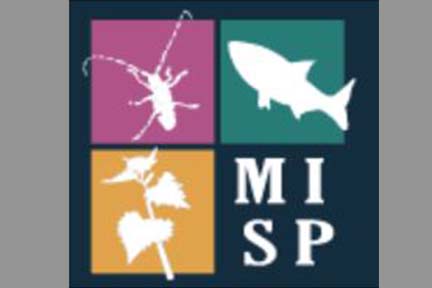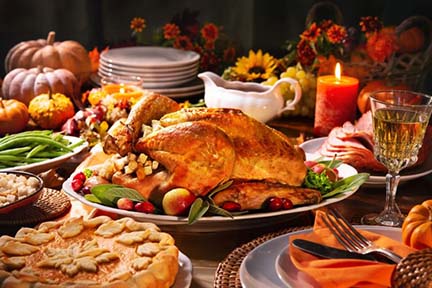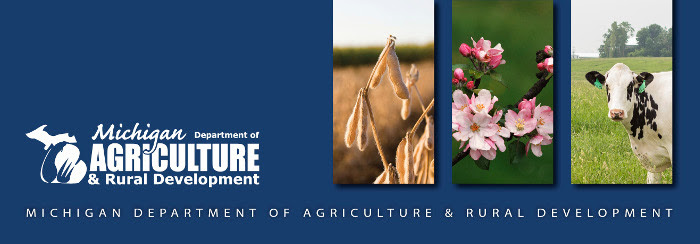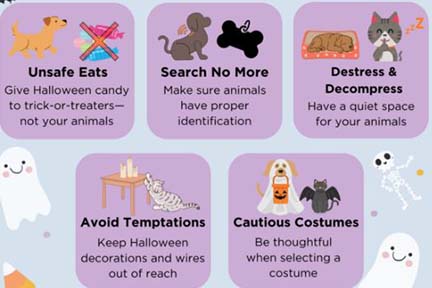
Road warriors, stealthy plants and stressed trees
|
|
|||||
 |
|||||
News Release |
|||||
|

|
|
|||||
 |
|||||
News Release |
|||||
|

|

 |
| For immediate release: November 26, 2024 Media contact: Jennifer Holton, 517-284-5724 Thanksgiving Food Safety: Tips to Enjoy a Safe Holiday FeastLansing, MI – As Thanksgiving approaches, families across the country are busy planning their holiday meals. While preparing the perfect turkey and all the trimmings can be exciting, food safety is critical to ensure your celebration remains joyful and healthy. Follow these essential tips for a safe and stress-free Thanksgiving. “Thanksgiving is a time for gathering with family and friends to celebrate and give thanks for the blessings and bounty of the harvest,” said Tim Slawinski, director of the Michigan Department of Agriculture’s Bureau of Food Safety and Animal Health. “As you celebrate, however, it’s important to take a few precautions to keep foodborne illness off your guest list.” Here are a few simple steps you can take to assure your holiday feast is safe: Planning Ahead Preparation: Store your food at the correct temperatures before preparation. Make sure the refrigerator and freezer are set to 40°F or below and 0°F, respectively. Make room for holiday meal items and leftovers by clearing outdated foods from your refrigerator. Make sure your refrigerator shelves and storage drawers are clean by washing and wiping them with hot, soapy water and letting them air dry. Thawing Your Turkey Safely The USDA outlines three safe methods for thawing your turkey:
Unsafe methods, such as thawing on the counter or in the garage, should be avoided under all circumstances. Cooking Tips
Leftovers Made Safe
By following these tips, you can focus on enjoying a delicious Thanksgiving meal without worrying about foodborne illnesses. For additional food safety tips, visit www.Michigan.gov/ |

|
|
|||||||
 |
|||||||
News Release |
|||||||
|

|
|||
|

 |
| Correction: The previous release had the incorrect total number of counties. The total number of counties covered under the disaster declaration is eleven.
For immediate release: October 15, 2024 MDARD Director Tim Boring Thanks USDA for Disaster Declaration Helping Michigan’s Sweet Cherry Farmers in Eleven CountiesDeclaration provides needed emergency resources for farmers hit by climate events, diseases LANSING, Mich. – Michigan is known as the “Cherry Capitol of the World,” but severe weather events continue to threaten the viability of the industry. This year, the state’s sweet cherry farmers lost upwards to 75 percent of their crops after a mild winter and warm, wet early season conditions led to significant insect and disease damage. In August, Governor Gretchen Whitmer requested a Declaration of Disaster from the U.S. Department of Agriculture (USDA) to make available much needed emergency resources for northern Michigan’s cherry producers. Yesterday, USDA issued disaster declarations for Antrim, Grand Traverse and Leelanau counties. In addition to the three primary counties USDA designated eight contiguous counties under the disaster declarations which are Benzie, Crawford, Manistee, Otsego, Charlevoix, Kalkaska, Missaukee, and Wexford. “I was proud to stand with Governor Whitmer as we urged the USDA to recognize the impact of these disasters on Michigan’s sweet cherry harvest, and glad to see our farmers receive access to critical federal assistance,” said Boring. “Receiving a USDA disaster declaration is key to ensuring producers can access the resources they need. I appreciate USDA Secretary Vilsack for his commitment to Michigan’s sweet cherry farming families.” “From farmers to producers to retailers, so many in our community rely on the success of crops like cherries,” said State Rep. Betsy Coffia (D-Traverse City). “I am glad to see the USDA make this decision to bring some relief for the devastating sweet cherry crop loss and I will continue to seek ways to do more to support our farmers weathering this latest challenge to their livelihoods.” The counties designated by USDA as natural disaster or contiguous disaster areas means qualified farm operators are eligible for low interest emergency loans from USDA’s Farm Services Agency (USDA-FSA) provided eligibility requirements are met. Farmers in eligible counties have eight months from the date of the declaration to apply for loans to help cover part of their actual losses. USDA-FSA will consider each loan application on its own merits, taking into account the extent of losses, security available and repayment ability. USDA-FSA has a variety of programs, in addition to the emergency loan program, to help eligible farmers recover from adversity. For Michigan to receive federal disaster status, the original crop loss estimates must be verified from harvest yield data. If losses of 30 percent or more are confirmed, and the disaster request is granted, eligible state producers will have access to USDA-FSA’s low-interest emergency loan program for up to 100 percent of their weather-related agriculture production losses. USDA-FSA is the agency responsible for compiling the official crop loss statistics and administering the federal emergency farm loan programs. For more information on the federal emergency farm loan programs, please visit the USDA-FSA website. |